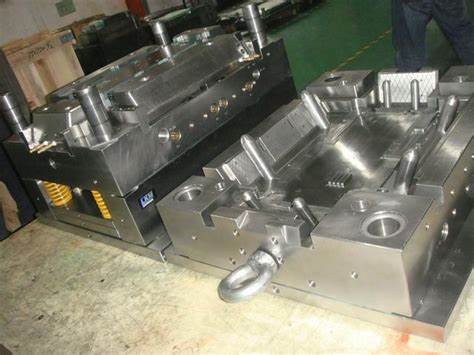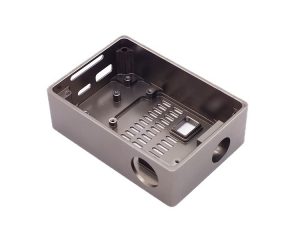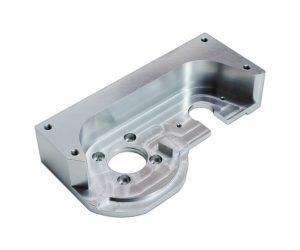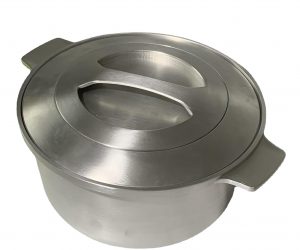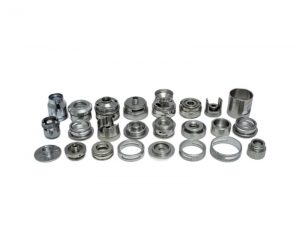Finding the perfect mold company for your manufacturing needs is super important to make sure your products turn out great. The choice you make will really affect how your project ends up. Here are some key things to think about when picking the right mold company:
- Experience and Expertise: Look for a company that has lots of experience and know-how in making the kind of molds you need. Check their past work and ask about other projects they've done to see if they can handle something similar.
- Types of Molds and Materials: Make sure they specialize in the type of molds you need, like plastic injection molds or die-casting molds. Also, check if they have worked with the materials you plan to use for your products.
- Design and Engineering Help: A good mold company should help with designing and engineering to make sure your part works well with the molding process. They can suggest changes to make production easier and cheaper.
- Quality Control: Quality is really important in making molds. Make sure the company has a strong system for keeping quality high. Look for certifications like ISO 9001, which show they care about maintaining consistent quality.
- Technology and Equipment: Check out the company’s machines and tools to make sure they are modern and well-maintained. Better equipment usually means better molds and faster delivery times.
- Prototyping and Testing: Find a company that offers prototyping services and does thorough testing to make sure the design works before full production. This helps catch any problems early on.
- Production Capacity: Make sure the company can handle how much you need to produce. A good company should be able to do both small and large runs efficiently.
- Lead Times: Think about how long it takes for them to make the mold. Getting it on time is crucial for meeting deadlines and getting your product to market quickly.
- Cost and Pricing: While cost is important, don’t just go for the cheapest option. Focus on the overall value and quality of their services. Choose a company with fair and clear pricing.
- Customer Reviews and References: Look at online reviews and testimonials from other customers to see how happy they were. Also, ask the company for references and talk to their clients about their experiences.
- Communication and Support: Good communication is key in any business relationship. Pick a company that responds quickly, is transparent, and offers great customer support. Clear communication builds trust and makes working together smoother.
- Location: Think about where the mold company is located, especially if you need to visit often or ship molds far distances. A company closer to your factory can make logistics easier.
By carefully checking these points and doing your research, you can find a mold company that fits your needs and delivers high-quality molds that meet or even exceed your expectations. Take your time to compare different companies and get quotes before making your final decision to ensure a successful partnership.
Introduction:
Mold companies play a crucial role in the manufacturing process by creating custom molds for plastic products. Finding the right mold company can be tricky, but it's essential to work with one that can deliver high-quality products and meet your specific needs. This guide will help you understand the different types of molds, what to consider when choosing a mold company, and how to work effectively with them.
First, let’s look at the kinds of molds mold companies make. Depending on the product and manufacturing process, they produce various types like injection molds, die-casting molds, and extrusion molds. These molds are vital as they determine the shape, size, and quality of the final product. So, it's important to pick the right type of mold for your product.
When picking a mold company, there are several things to think about. First, check their experience and expertise. An experienced company usually understands your needs better and offers great advice and solutions. Second, consider their production capacity and technical strength. Ensure they have enough equipment and skilled staff to meet your needs and deliver high-quality products on time. Also, their reputation matters. You can judge their reliability and trustworthiness by looking at customer reviews and recommendations.
Once you choose the right mold company, here are some tips for working well with them:
- Keep the communication clear: Share your needs and requirements promptly and stay in regular touch to ensure everything goes smoothly.
- Be open and transparent: Share your product designs and manufacturing processes so they can understand your needs better and provide better solutions.
- Give feedback: If you have any questions or suggestions about their products or services, share them promptly so they can improve.
In short, choosing the right mold company is key to your manufacturing success. By understanding the different types of molds, considering important factors, and following best practices, you can build a good relationship with your mold company and get high-quality products.
Understanding Mould Companies:
Mould companies specialize in the design, production, and maintenance of moulds used in the manufacturing process. These companies use high-quality materials and cutting-edge technology to create customized moulds that meet the unique needs of their clients. Mould companies may specialize in a particular type of mould or offer a range of moulds for different manufacturing processes.
Types of Moulds Produced by Mould Companies:
There are three primary types of moulds produced by mould companies: injection moulds, compression moulds, and blow moulds. Injection moulds are used to create complex plastic parts in high volumes. Compression moulds are used for high-strength applications and can produce large parts with low waste. Blow moulds are used to create hollow objects like bottles and containers.
Factors to Consider When Choosing a Mould Company:
Several factors should be considered when choosing a mould company for your manufacturing needs. Experience and expertise, quality of work, customization and flexibility, and lead time and cost are all critical considerations. It's important to work with a mould company that has the knowledge, skills, and resources to meet your specific requirements.

Best Practices for Working with a Mould Company:
To ensure the success of your manufacturing project, it's essential to follow best practices when working with a mould company. Communication and collaboration, regular maintenance and cleaning, and continuous improvement and innovation are all critical aspects of working with a mould company. By establishing a strong working relationship with your mould company, you can achieve optimal results and maximize your return on investment.
Conclusion:
Picking the perfect mold company for your manufacturing needs is crucial for the success of your project. By knowing the types of molds these companies make, what to think about when choosing one, and the best ways to work with them, you can make smart choices and get the best results. Partnering with a reliable and seasoned mold company can help smooth out your production process and boost your overall efficiency and profits.
